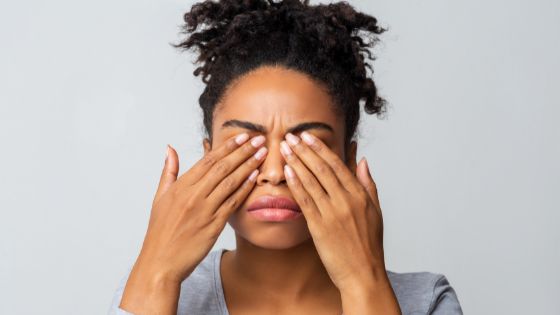Can you get Pink Eye from a Fart? The Truth!

No, you cannot get pink eye from a fart. Pink eye is an infection of the conjunctiva, the thin, clear membrane that lines the eyelids and coats the surface of the eyeball. Farts do not contain bacteria or viruses that can cause pink eye.
The only way to contract pink eye is by exposure to another person who has it and is contagious or by exposure to contaminated surfaces or objects.
What is pink eye, and what are the symptoms?
Pink eye, also known as conjunctivitis, is a common condition that affects the eyes. The symptoms include redness, swelling, and discharge. In addition, bacteria, viruses, or irritants can cause pink eye, which is often highly contagious.
Treatment will vary depending on the cause of the pink eye, but it typically involves cleaning the affected area and using artificial tears to relieve symptoms.
In most cases, pink eye will resolve itself within a week or two. However, severe cases may require medical treatment.
Common causes of pink eye
Several different things can cause pink eye. The most common causes include:
Bacteria
Bacteria is the most common cause of pink eye and is often highly contagious. It can enter the eye through contaminated hands, objects, or contact lense. It can also spread through coughing and sneezing.
Viruses
Viruses are another common cause of pink eye and can also be highly contagious. The most common virus that causes pink eye is the adenovirus.
This virus can spread through contaminated hands, objects, or contact lenses. It can also spread through coughing and sneezing.
Allergens
Allergens, such as pollen, dust, or animal dander, can cause pink eye. These irritants can enter the eye through rubbing or touching the eye. However, allergic pink eye is often not contagious.
Irritants
Certain chemicals or other irritants, such as smoke or chlorine, can cause pink eye. These irritants can enter the eye through exposure to the substance or by touching the eye.
Symptoms of pink eye
The symptoms of pink eye can vary depending on the cause, but they typically include:
- Redness in the eye
- Swelling of the conjunctiva
- Increased tear production
- Itchy eyes
- Blurred vision
- Discharge from the eye
- Crusting of the eyelashes
Pink eye is often highly contagious, and symptoms can appear within 24 hours of exposure.
Treatment for pink eye
The treatment for pink eye will vary depending on the cause, but it typically involves cleaning the affected area and using artificial tears to relieve symptoms.
Bacterial pink eye can be treated with antibiotics, while viral pink eye does not require any specific treatment and will usually resolve within a week or two.
If your pink eye is caused by an irritant, such as smoke or chlorine, the symptoms should improve once you are no longer exposed to the substance.
When to see a doctor
You should see a doctor if your symptoms are severe or if you have any concerns about your condition. You should also see a doctor if your symptoms do not improve within a few days.
Severe pink eye can lead to serious complications, such as vision loss. Therefore, it is essential to seek medical treatment if you think you may have pink eye.
How to prevent pink eye
There are several things you can do to prevent pink eye, including:
- Washing your hands regularly
- Avoiding touching your eyes
- Avoiding sharing towels, pillowcases, or other articles of clothing
- Not sharing contact lenses or contact lens solutions
- Disinfecting surfaces that may be contaminated
- If you wear contact lenses, it is essential to clean them regularly and replace them as often as your doctor recommends.
Takeaway
Can you get pink eye from a fart? No. However, you can get pink eye from bacteria, viruses, or irritants. Pink eye is often highly contagious, and symptoms can appear within 24 hours of exposure. Treatment will vary depending on the cause of the pink eye, but it typically involves cleaning the affected area and using artificial tears to relieve symptoms.
In most cases, pink eye will resolve itself within a week or two. However, severe cases may require medical treatment.
Prevention measures include washing your hands regularly and avoiding touching your eyes. You should also avoid sharing towels, pillowcases, or other articles of clothing.
DISCLAIMER: buildyourbody.org does not provide medical advice, examination, or diagnosis.
Medically reviewed and approved by Nataniel Josue M D.
